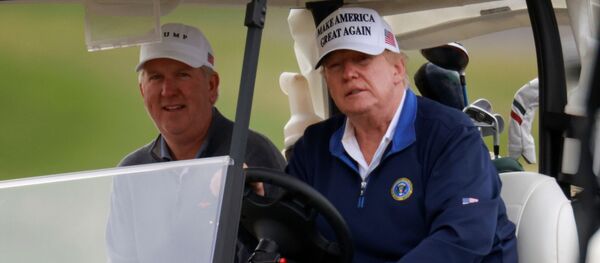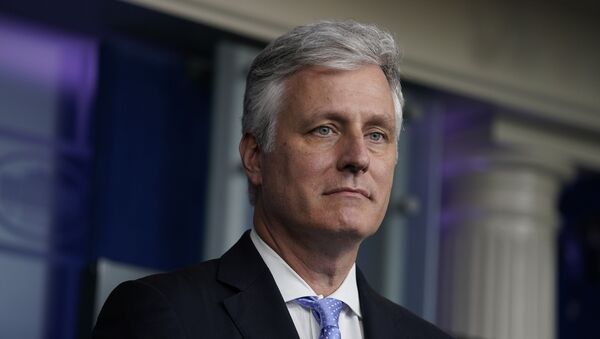The Chinese embassy in Manila slammed US national security advisor Robert O'Brien for what it calls “stirring up trouble in the South China Sea” and “provoking a rift between China and the Philippines”, media reported on Tuesday.
According to the Manila embassy, Washington was “not to promote regional peace and stability, but to create chaos in the region" for US self-interest.
“In recent years, to safeguard its regional and global hegemony, the US has regarded itself as ‘patron’ and ‘judge’ of regional countries and directly intervened in the South China Sea and other issues,” the statement said.
It added US officials had “fanned the flames everywhere" by stirring up confrontation and interfering with Chinese efforts to peacefully negotiate and managed disputes with Asian neighbours, among others, "seriously" undermining regional security.
“The US is the biggest driver of the militarisation of the South China Sea and the most dangerous external factor endangering the peace and stability of the South China Sea,” it concluded.
The statement comes just hours after the Chinese embassy in Hanoi warned the US official of escalating tensions further on issues such as the South China Sea and Mekong River, two disputed regions in Southeast Asia.
“The US is not a party to the South China Sea dispute … but has been openly interfering in the South China Sea issues under the name of safeguarding stability … and ‘freedom of navigation’. Its purpose is never to help regional countries to resolve dispute but to maintain its hegemony in the region," it said as quoted by the South China Morning Post.
O'Brien, Pompeo US Renew Power Struggle In Southeast Asia
Mr O'Brien's surprise tour of Vietnam and the Philippines reaffirmed Washington would back the two nations in maritime disputes on Beijing's allegedly "incredibly aggressive" actions in the South China Sea.
He also confirmed $18m USD in missiles Trump pledged to the Philippines in April, Philippines foreign secretary Teodoro Locsin said as cited by the SCMP.
The news comes after O'Brien stepped in for Trump at the East Asia Summit, hosted by Vietnam and held by 10 ASEAN nations and leaders from China, Russia and Japan, with the former accusing China of threatening "peace, stability and sovereignty" in the Mekong river basin and South China Sea, without going into detail, a White House statement said.
But China has criticised the US for anti-China quad talks and has slammed US secretary of state Mike Pompeo for "maliciously" creating confrontation in the region, it was reported.
A spokesperson from the Chinese embassy in Tokyo said in October that the US should abandon its "Cold War mentality and ideological prejudice" and treat regional relations with China "in a constructive manner".
The comments come after Pompeo said in an interview with Japanese media that a "forceful" response was needed, adding that India, Australia and Japan should form the four-nation alliance to counter Beijing.

The US said it would offer assistance for exports after Australia was hit with agricultural tariffs numerous products such as beef, barley and wine, among others.
US officials have also considered a ban on China's Xinjiang Uyghur Autonomous Region, a strategic location in China's Belt and Road Initiative, with Washington citing alleged human rights abuses, adding it may blacklist Shanghai's Semiconductor Manufacturing International Corp (SMIC) and other tech firms.
The comments come days after China inked the Regional Comprehensive Economic Partnership (RCEP) with 14 regional nations, including Australia, Japan, New Zealand, South Korea, Vietnam and the Philippines, among others.
The deal, signed on 15 November, is the world's largest free trade agreement in history, covering 2.3bn people and 26.2 trillion USD, or 30 percent of global gross domestic product (GDP).




